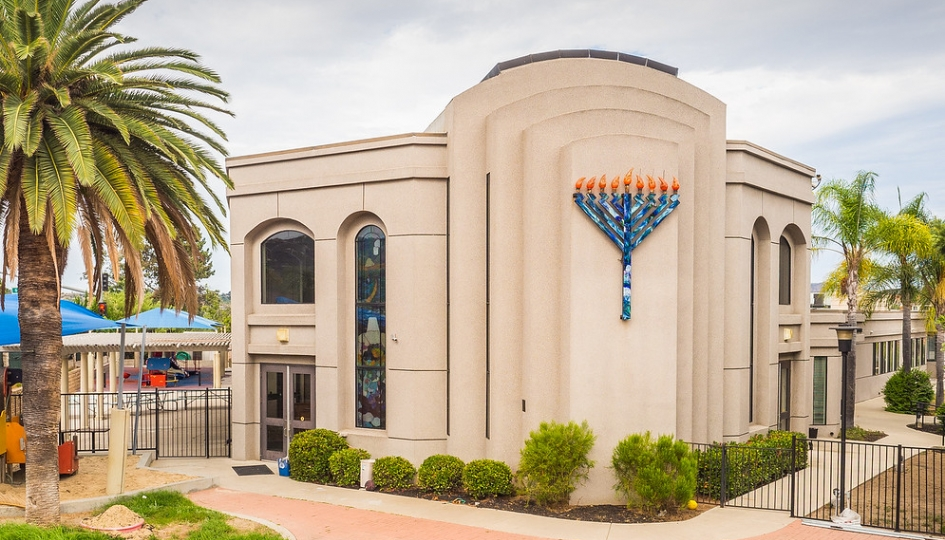
William Faulkner told us that “The past isn’t dead. It isn’t even past.” History may not repeat itself, but often it returns in rhyme or costume. Last year's massacre at the Tree of Life synagogue in Pittsburgh and last Saturday’s shooting in Poway, California should be powerful lessons to us all that while the hatred that fueled pogroms across Eastern Europe and Russia and that fueled Hitler’s “final solution” has been largely dormant, but certainly not dead. Once again, it is inflicting a terrible toll and generating the fear that is the mother of totalitarianism.
And Jews are certainly not alone. Islamophobia fanned by the right since 9/11 has its roots in the Crusades, which never truly ended. The Trump administration and other racist assaults on the rights and lives of people of color are the continuing expressions of slavery, Jim Crow apartheid, and the desperate campaign to preserve white privilege and superiority.
For most of my life, despite my run-ins with anti-Semitism, my family was reasonably secure and among the privileged. And with privilege came the obligation to work to protect the rights and justice of others.
And now the return to history: I was born in the shadow of the Holocaust. A secular Jew, my parents taught me that the fundamental laws to be honored were “Never again to anyone” and “Never participate in the crime of silence” by turning away from and not addressing injustice. And they taught that there is a direct correlation between intellectual integrity – truth – and who lives, who dies, and how. These laws led me South during the Civil Rights movement; to work to end Israel’s confoundingly racist, brutal repression of Palestinians; and to my decades of friendship and collaborations with Japanese people and others who were victims of nuclear weapons.
I can still see the blue numbers tattooed on the arm of the grandmother of one of my best friends – her memento from Auschwitz. Later in life, the mother of my upstairs neighbor always wore a scarf around her arm – embarrassed to show her tattoo and suffering constant psychic pain. I remember when Adolf Eichmann was captured and tried for his lead role in “the final solution,” the many books I read in my adolescence about the Warsaw Ghetto Uprising, extermination camps, Jews’ skin being harvested for Nazi lampshades, the cinder paths in the extermination camps created from the ashes of “my people.” Later there was Hannah Arendt’s “Eichmann in Jerusalem” and the “banality of evil,” which in so many ways also enlightens our understanding of how systems of injustice and the wars of empire have endured here – even as many of us resist and sometimes prevail.
Anti-Semitism truncated my father’s hopes and possibilities. Ford and IBM were not comfortable places for Jews to work even after World War II (Henry Ford was among the most virulent anti-Semitic figures of the time. Among other things, he promoted the slanderous “Protocols of the Elders of Zion”). At the State Department, where my father passed the written test, he – like other Jews, Blacks, and Catholics – was kept out of foreign service via the oral interview. Listening to our old radio, he and my mother told me about the fear they and other Jews felt in the 1930s when Father Coughlin whipped up hatred of Jews on his nationally broadcast radio program.
And there are stories I tell friends: How I was punished for not properly singing Christmas carols in my school. How I vented my rage at an anti-Semitic slur when caddying at an elite golf course. Worse, how in 1979, our landlord banged on the pipes during our Passover Seder, later evicting my family for the crime of my being Jewish, and how Boston officials prevented investigation of our complaints.
But there are also stories of the men and women I was privileged to know and work with in Europe – people like Hein Van Wijk, Colby Molenaur, and Kees Knop who during those dangerous years had the courage and wiles to resist Nazi rule; to rescue, hide, and feed Jews, as well as others.
If we didn’t learn from the Nazi chants in Charlottesville or the Tree of Life massacre, Poway is a murderous exclamation mark that tells us that the past isn’t dead. It illuminates where we live. Like police brutality against people of color, Trump's Muslim ban, and concentration camp-like incarceration of immigrants who are no less desperate than Jews fleeing pogroms in the past, these atrocities are all deeply rooted in the country’s racist and colonial settler U.S. culture.
Yet, we are the hope we are looking for. Like the prophets who proceeded and have followed him, Martin Luther King Jr. taught us that "Injustice anywhere is a threat to justice everywhere. We are caught in an inescapable network of mutuality, tied in a single garment of destiny. Whatever affects one directly, affects all indirectly."
Yoko Ono and John Lennon taught that “The War is Over If We Want.” Similarly, the daily horrors – from Charlottesville to Poway, and from the borders to the Bronx – can be overcome. Willingness to take risks and to build unity in our struggles – including and not unrelated to the climate crisis - are imperative. Courage, intersectional organizing, and advocacy are the ways forward.